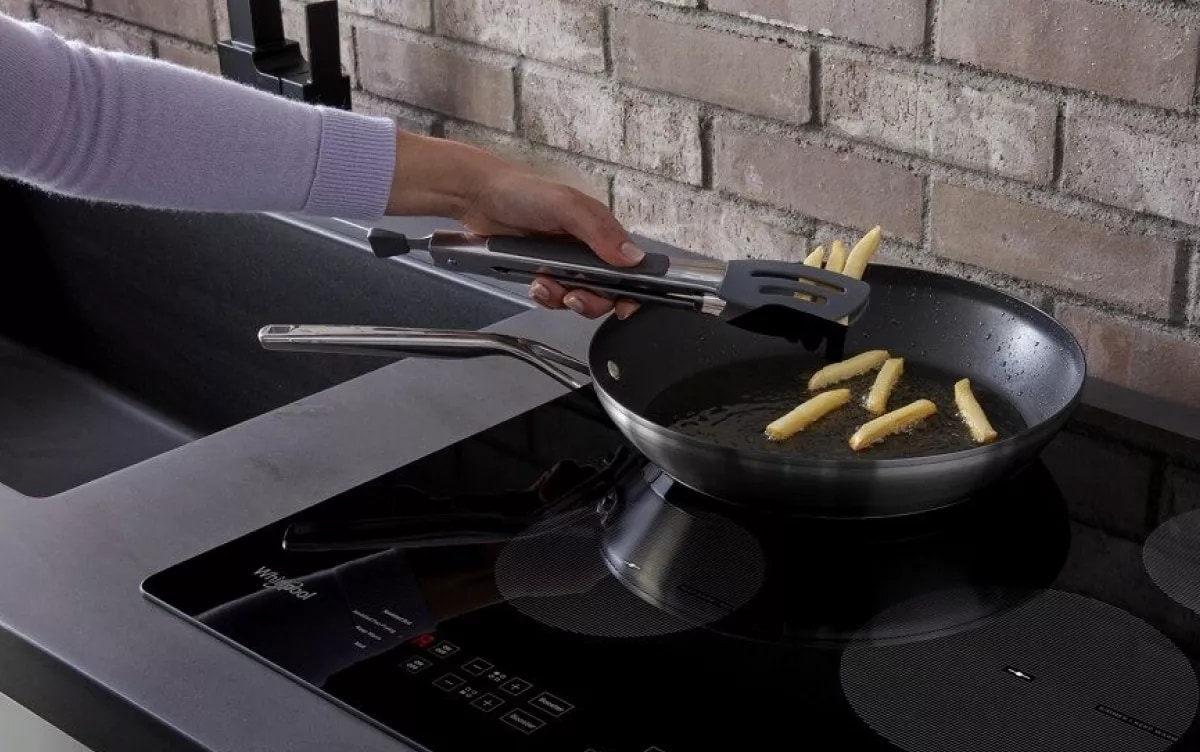
For dedicated barbecue lovers, becoming a master chef involves knowing the right tools. One popular option that has caught the attention of many is the induction cooktop. But how does induction work with cast iron, a beloved material for those who enjoy BBQ? This article delves into the science behind using cast iron on induction cooktops and why it can transform your grilling experiences.

The Science of Induction Cooking
Induction cooking utilizes electromagnetic fields to heat pots and pans directly. Unlike traditional gas or electric stoves, induction cooktops do not generate heat in a conventional way. They create a magnetic field that induces electric currents within the cookware, resulting in direct heating. This method is not only energy-efficient but also provides precise temperature controlideal for tasks such as simmering sauces or achieving the perfect sear on steaks.
Why Cast Iron is a Dream Material for BBQ Lovers
For years, cast iron has been the top choice among barbecue aficionados due to its excellent heat retention and even heat distribution. Its sturdy construction allows for high-heat cooking, essential when aiming for that flawless sear on meats. Additionally, the natural non-stick surface that develops over timeknown as seasoningenhances flavors and simplifies cleanup.
When it comes to induction cooktops, cast iron shines. The ferrous properties of cast iron make it highly responsive to electromagnetic fields, allowing it to heat up quickly and maintain a consistent temperature. This level of precision in cooking is vital for barbecue enthusiasts.
Advantages of Using Cast Iron on Induction Cooktops
One major advantage of using cast iron on induction cooktops is energy efficiency. These cooktops heat the cookware directly, minimizing energy loss. This not only accelerates cooking times but also reduces energy expenses. Moreover, the rapid heat response of induction cooking enables quick adjustments to temperatures, preventing overcooking.
Induction cooktops also create a safer cooking environment. Because the cooktop remains relatively coolsince it doesnt generate heat directlythe risk of burns is significantly lowered. This feature is particularly important in a bustling barbecue setting where safety is paramount.
Challenges and Important Considerations
Despite the numerous advantages, there are some challenges to keep in mind when using cast iron on induction cooktops. The weight of cast iron requires careful handling to prevent scratches on the cooktop surfaceit's best to lift the cookware rather than slide it. Additionally, the excellent heat retention of cast iron means that it takes longer to cool down, necessitating careful handling post-cooking.
An important consideration is ensuring that your cast iron pans or pots fit properly on the induction cooking zone. Mismatched sizes may lead to uneven heating or lengthened cooking times.
Practical Tips for BBQ Lovers
For those ready to embrace induction cooking in their barbecue adventures, here are some helpful tips to get you started:
- Preheat Gradually: Preheat your cast iron slowly on low settings prior to increasing the heat for even distribution.
- Monitor Your Temperatures: Utilize an infrared thermometer to accurately check surface temperatures, aiding in achieving perfect grill marks and juicy meats.
- Keep it Seasoned: Preserve your cast iron's non-stick surface by seasoning it regularlythis involves applying a thin coat of oil and heating it to create a natural non-stick layer.
Additional Resources
For a more comprehensive understanding of using cast iron with induction cooktops, check out this guide from Lodge Cast Iron. You can also find valuable insights on cleaning grill grates or discover stylish leather aprons. For eco-conscious alternatives, check out eco-friendly aprons.

FAQ Section
Can all cast iron cookware be used on induction cooktops?
Yes, all cast iron cookware can be utilized on induction cooktops, as it consists of ferrous materials that interact effectively with the magnetic fields generated by the induction cooktop.
Does using cast iron on induction take extra time?
No, in fact, induction cooktops can heat cast iron quickly due to their direct heat transfer, often shortening cooking durations compared to traditional methods.
How can I avoid scratching my induction cooktop?
To prevent scratches, always lift your cast iron cookware rather than sliding it across the surface. You may also consider using protective mats or pads specifically made for induction cooktops.



